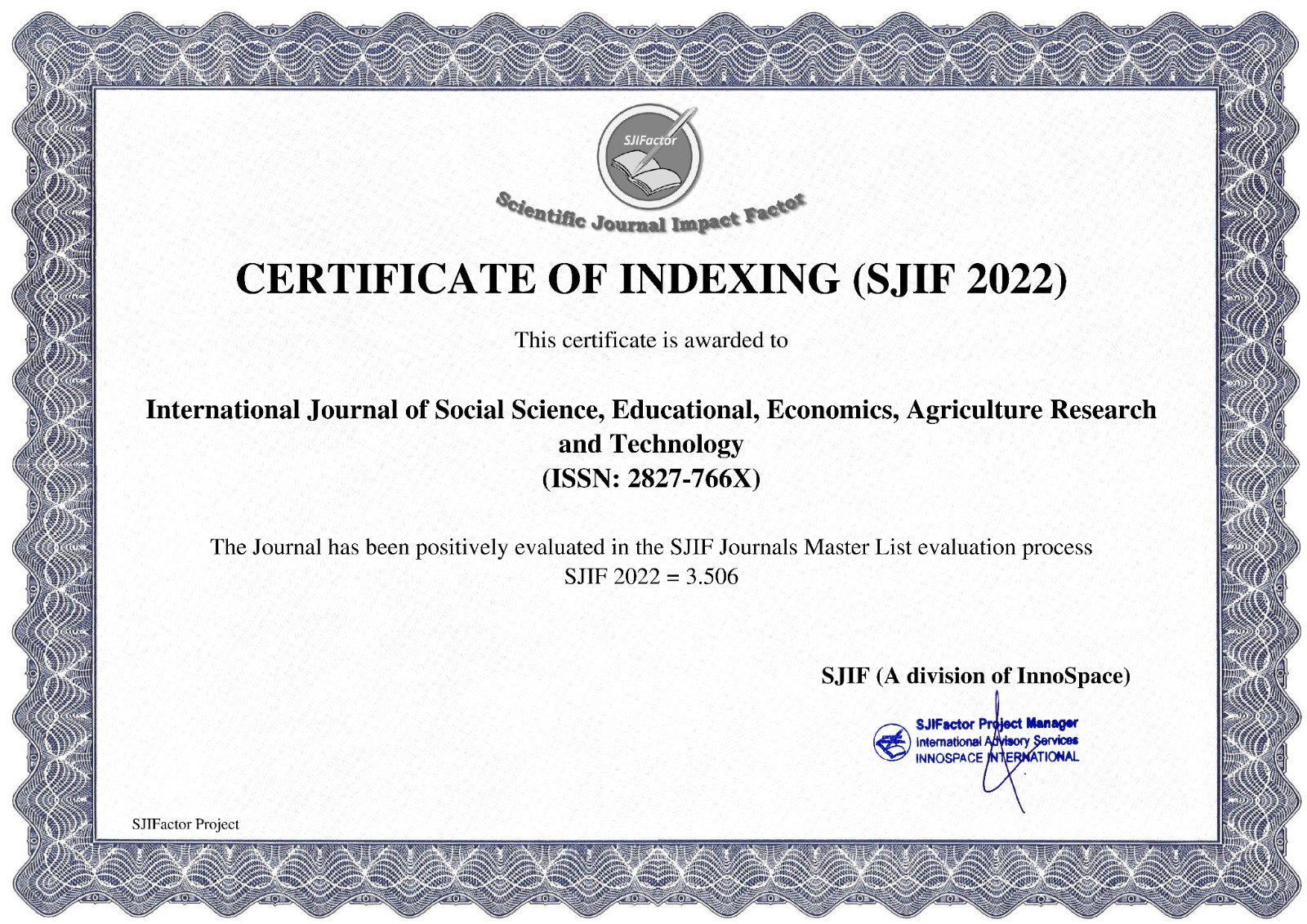THE EFFECT OF PERCEIVED ORGANIZATIONAL SUPPORT ON WORK LIFE BALANCE AND EMPLOYEE PERFORMANCE
Main Article Content
Khairunnisak
The purpose of this research is to analyze the effect of Perceived Organizational Support on Work-life Balance and Employee Performance. This study used random sampling which was distributed to female health workers in Indonesia. This study uses the Partial Least Square analysis technique using SmartPLS 3.3.9. The results of statistical test analysis using alpha = 0. 05. Meanwhile, the results of this study indicate that perceived organizational support has a positive and significant effect on work-life balance and perceived organizational support has a positive and significant effect on employee performance.
Akhigbe, E. A., & Osita-Ejikeme, U. E. N. (2021). Corporate Culture And Employee Engagement Of Insurance Firms In Rivers State, Nigeria. Research Journal of Management Practice, 1(8), 60– 71. http://www.ijaar.org/.
Ambarsari, V. R., Khuzaini, & Prijati. (2021). Employee engagement memediasi pengaruh dukungan organisasi, lingkungan kerja terhadap kinerja karyawan. Inovasi, 17(2), 239–247.
Amirah, A., Junaedi, S., Pasinringi, S. A., Masyarakat, F. K., & Hasanuddin, U. (2021). Pengaruh Perceived Organizational Support Terhadap Kinerja Dokter Melalui Work Engagement Di Rumah Sakit Umum Daerah Kelas B Di Kota Makassar. Jurnal Ilmiah Ecosystem, 21(1), 158– 167.
Andriprianto, H. F. A., Maridjo, H., & Dharma, U. S. (2022). Pengaruh Employee Engagement, Spiritualitas Kerja, Budaya Organisasi Terhadap Kinerja Karyawan Dimoderatori oleh Pimpinan Kepala Sekolah. Jurnal Pendidikan Dan Kebudayaan Missio, 14(1), 62–72.
Anggraini, A., Tridayanti, H., & Damayanti, E. (2021). The Influence of Work Environment and Perceived Organizational Support on the Employee Performance of PT Y in Surabaya with Employee Engagement as an Intervening Variable. Jurnal Ekonomi, 21(1), 35–51.
Novelia, P., Sukhirman, I., Hartana, G. (2013). Hubungan antara work/life balance dan komitmen berorganisasi pada pegawai perempuan. Universitas Indonesia: Jakarta.
Nurendra, A. M., & Saraswati, M. P. (2016). Model peranan work life balance, stres kerja dan kepuasan kerja pada karyawan. Humanitas, 13(2), 84-94.
Pouluse, S., & N, Sudarsan. (2014). Work-Life Balance: A Conceptual Review. International Journal of Advances in Management and Economics, 3, 1-17.
Pozen, R. C. (2012). Stop working all those hours. Harvard Business Review. Diunduh dari https://hbr.org/2012/06/stop-working-all-those-hours.
Ivancevich, J. M., Konopaske, R., & Matteson, M. T. (2008). Perilaku dan manajemen organisasi.
Erlangga. Jannah, M. (2018). Metodologi penelitian kuantitatif untuk psikologi. UNESA University Press.
Jones, F., Burke, R. J., & Westman, M. (2006). Work-life balance: A psychological perspective. Psychology Press






















